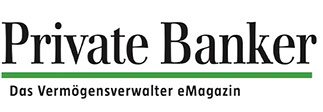

Value Column von Hans Peter Schupp
21. OCTOBER 2022
Family businesses: The „G“ problem with ESG scores
ESG, which stands for Environment, Social and Governance, i.e. environmental protection, social responsibility and good corporate governance – and, thus, are the key factors by which the sustainability, ethical quality and social impact of corporate activity are assessed. These are all factors according to which ESG ratings are assigned. Are all three segments equally weighted? Is social responsibility worth more than protecting the environment, or good corporate governance?
Supervisory Board as a constructive sparring partner
This decision is probably controversial even among experts. What we notice time and again, however, is that family-run companies, moreover if they are listed on the stock exchange, often receive lower ESG scores than other companies. The „G“, i.e. good and responsible corporate governance, is criticized, particularly the areas of transparency and stakeholder participation. The main criticism is that the supervisory bodies, i.e. the supervisory board, include family members who have previously managed the company, or who merely control it in an „accompanying“ capacity.
Does this really have a negative impact? The supervisory board may not consist of external controllers, but rather of people who critically accompany the management and are available as constructive sparring partners. Does this stand in the way of the principles of good corporate governance as defined by the ESG criteria? Probably not.
High priority given to sustainability
The topic of sustainability is particularly important in family businesses. This is because owner families typically invest a large part of their own assets in the company and, out of self-interest alone, assume full responsibility, also towards all long-term stakeholders. They are interested in a continuous value development and not in short-term profit maximization. This suits us as fund managers very well because we generally hold our portfolio companies for three to five years. A long-term strategy is more important to us than focusing on the next quarterly result.
Also, if you look at a 2020 study by Crédit Suisse Research, it shows that the average ESG scores of family businesses increased significantly more than the scores of non-family businesses between 2014 and 2019. Today, the ESG scores of family businesses continue to be driven primarily by their strong focus on environmental and social issues. In such developments, the criticized „G“ actually helps rather than hinders. After all, families have the staying power to see these processes through to full implementation.
„Green pearl“ Danieli
Two examples: At the car rental company Sixt, the next generation has been calling the shots for some time now. Erich Sixt, the head of the family, is the chairman of the supervisory board. Recently, the board of directors decided – certainly not against the will of the supervisory board – to include electric cars from the Chinese car manufacturer BYD in its vehicle fleet on a large scale. In a first step, Germany’s largest car rental company ordered several thousand purely battery-powered vehicles. That’s a big investment. This will make Sixt a pioneer of a green fleet in the car rental business.
Another example may be our portfolio company Danieli, which is also run by a family. The Italians are among the world’s leading suppliers in plant engineering for the metallurgical industry and are now a real gem in terms of environmental protection and sustainable business. Together with Tenova, for example, Danieli is building a plant for the production of directly reduced iron (DRI) for the Salzgitter steel group with up to 100 percent hydrogen as a reducing agent. Normally, the production of steel involves high emissions of CO2. The Danieli and Tenova plant will avoid this in the future.
Incomprehensible scoring
For us, this is a perfect green investment, which also has an enterprise value of 0 (market capitalization 1.2 billion euros, net cash 1.2 billion euros, net profit about 200 million euros). It is hard to understand why Danieli would not receive a AAA ESG rating. It is probably because companies that develop processes and procedures to produce more sustainably are rated significantly lower in existing scoring models than those that use known procedures. As explained, Danieli has developed a process to produce steel without CO2 emissions. Is this taken into account in the ESG scoring? No. Does the scoring deteriorate because Danieli is a family company? Unfortunately yes!
Translation for convenience only!
The author: Hans Peter Schupp is a board member of FIDECUM AG and portfolio manager of the Contrarian Value Euroland fund.

